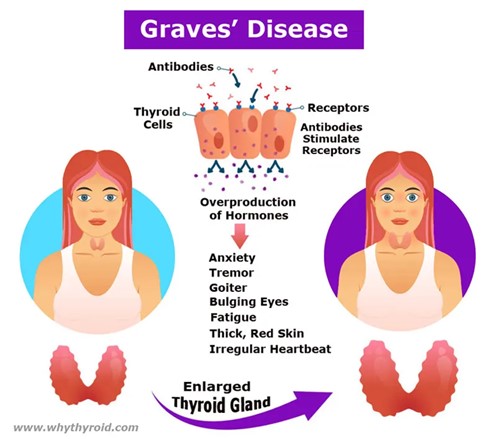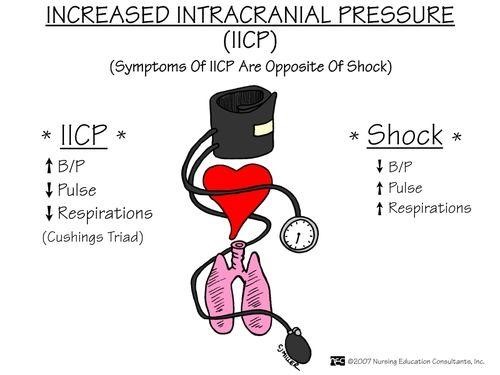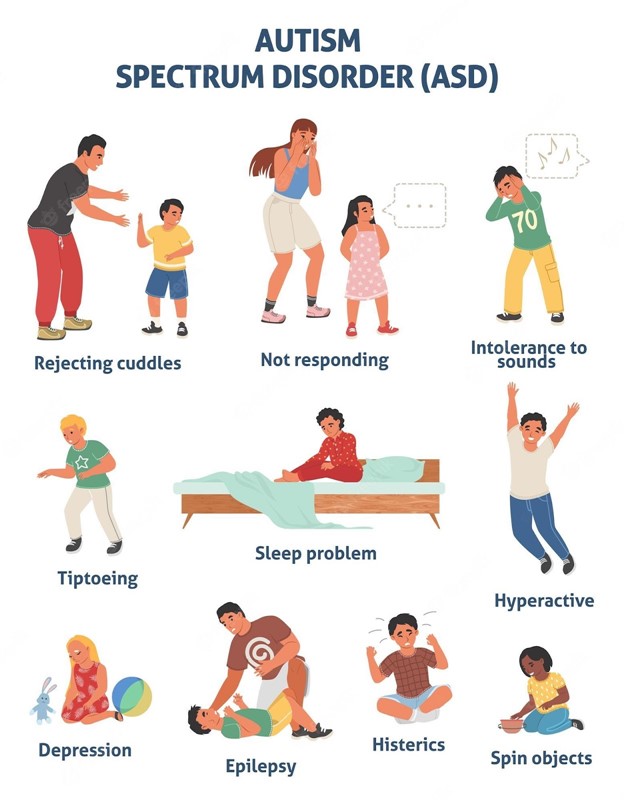A nurse is assessing an adolescent who has an exacerbation of Graves' disease (Hyperthyroidism). Which of the following findings should the nurse expect?
Heat intolerance
Weight gain
Bradycardia
Lethargy
The Correct Answer is A
A) Heat intolerance.
Explanation: This statement is true. Heat intolerance is a common symptom of hyperthyroidism, including Graves' disease. People with hyperthyroidism often have an overactive thyroid gland that produces an excessive amount of thyroid hormones. This can lead to an increased metabolic rate, which in turn makes them sensitive to heat. They may feel excessively warm, sweat more than usual, and have difficulty tolerating hot weather.
B) Weight gain.
Explanation: This statement is false. Weight gain is not a typical finding in Graves' disease or hyperthyroidism. In fact, one of the hallmark symptoms of hyperthyroidism is unexplained weight loss despite increased appetite. The elevated levels of thyroid hormones cause an increase in metabolism, leading to weight loss.
C) Bradycardia.
Explanation: This statement is false. Bradycardia refers to an abnormally slow heart rate, typically below 60 beats per minute. In hyperthyroidism, the heart rate is often elevated rather than slowed down. The excessive thyroid hormones can lead to an increased heart rate (tachycardia) and palpitations. It's important to note that if the question were about hypothyroidism (underactive thyroid), bradycardia might be more relevant.
D) Lethargy.
Explanation: This statement is false. Lethargy, or a state of extreme tiredness and lack of energy, is more commonly associated with hypothyroidism (underactive thyroid) rather than hyperthyroidism. Hyperthyroidism usually leads to symptoms of increased energy, restlessness, and hyperactivity due to the elevated metabolic rate caused by excess thyroid hormones.

Nursing Test Bank
Naxlex Comprehensive Predictor Exams
Related Questions
Correct Answer is C
Explanation

Correct Answer is D
Explanation
a. Allow for adjustment of rules to correlate with the child's behavior: While flexibility can be important, allowing rules to be adjusted based on behavior can lead to inconsistency and confusion for the child. Consistent rules and expectations are crucial for children with ASD, as they thrive on predictability and structure.
b. Allow for imaginative play with peers without supervision: Children with ASD may have difficulties with social interactions and imaginative play. Supervision is important to ensure that play is safe, appropriate, and supportive of social skill development. Unsupervised play might not be beneficial if it leads to misunderstandings or conflicts.
c. Provide a flexible schedule that adjusts to the child's interests: Children with ASD generally benefit from a structured and predictable schedule rather than a flexible one that changes based on their interests. Predictability helps them feel secure and reduces anxiety. A flexible schedule could lead to increased stress and difficulty in transitioning between activities.
d. Establish a reward system for positive behavior: A reward system is an effective strategy for encouraging positive behavior in children with ASD. Reinforcement of desired behaviors helps to build and maintain new skills and can provide motivation. This approach aligns well with behavioral interventions commonly used with children on the autism spectrum.

Whether you are a student looking to ace your exams or a practicing nurse seeking to enhance your expertise , our nursing education contents will empower you with the confidence and competence to make a difference in the lives of patients and become a respected leader in the healthcare field.
Visit Naxlex, invest in your future and unlock endless possibilities with our unparalleled nursing education contents today
Report Wrong Answer on the Current Question
Do you disagree with the answer? If yes, what is your expected answer? Explain.
Kindly be descriptive with the issue you are facing.
